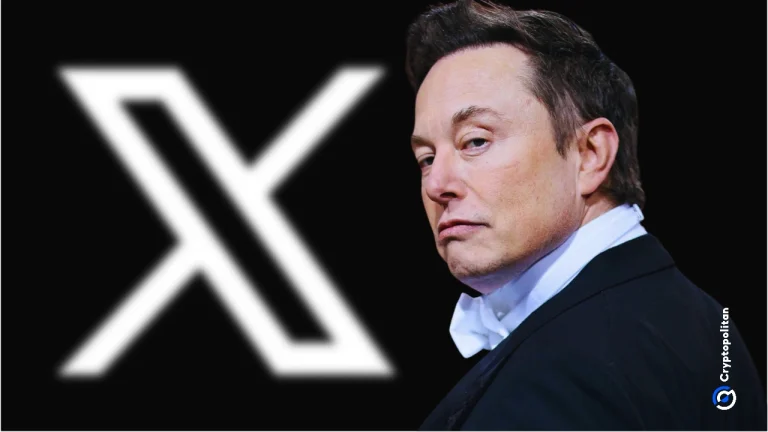Key Takeaways
- Elon Musk has announced X Chat, a new encrypted messaging feature for the X platform, set to rival services like Telegram and WhatsApp.
- The feature will utilize peer-to-peer encryption technology, similar to Bitcoin, and is expected to launch within the next few months.
- Musk emphasized that X Chat will not include advertising hooks, differentiating it from platforms like WhatsApp, which he stated uses user data for targeted ads.
- Alongside X Chat, Musk has also launched Grokipedia, an AI-powered version of Wikipedia, which has drawn criticism from Wikipedia founder Jimmy Wales.
- Both initiatives are seen as extensions of Musk’s expanding digital and media influence, aligning with some of his expressed political viewpoints.
X Chat Set to Disrupt Messaging Landscape
Elon Musk has officially announced X Chat, a forthcoming encrypted messaging feature for the X platform designed to compete directly with established players like Telegram and WhatsApp. The new service is anticipated to roll out to users within the coming months. The announcement was made during a recent episode of The Joe Rogan Experience podcast, where Musk revealed that the entire messaging infrastructure for X has been rebuilt from the ground up.
Musk stated, On X, we just rebuilt the entire messaging stack into what’s called ‘X Chat.’ This significant overhaul aims to provide users with a more secure and private communication channel within the X ecosystem.
Peer-to-Peer Encryption and Advertising-Free Vision
The X Chat feature is being developed with peer-to-peer encryption technology, a method often associated with decentralized systems like Bitcoin, ensuring enhanced security for user communications. Development is currently focused on ensuring the platform’s readiness for public deployment.
Musk projected an availability timeframe of a few months for X Chat. A key differentiator he highlighted is the absence of advertising integrations, directly contrasting with how platforms like WhatsApp operate. He explained that competitors such as WhatsApp knows enough about what you’re texting to know what ads to show you.
💡 Musk highlighted the security implications of such targeted advertising, suggesting that the ability to display tailored ads implies access to a substantial amount of sensitive user data, including private messages, which could be vulnerable to breaches by hackers.
While WhatsApp’s parent company, Meta, asserts that user conversations are secured by end-to-end encryption using the Signal Protocol, questions persist regarding the encryption of metadata, such as contact frequency and duration, and chat backups. Meta’s FAQ notes that they work with other Meta companies to help provide, improve, and support each other’s services, and users integrating WhatsApp with other Meta products consent to some data sharing.
X Chat’s commitment to avoiding advertising hooks is central to Musk’s strategy. His primary objective is to establish a communication system that is fully encrypted and capable of handling messages, file transfers, and audio/video calls, positioning it as the least insecure of any messaging system. The service is slated for integration into the X platform and will also be available as a standalone application.
Grokipedia: Musk’s AI-Powered Encyclopedia Emerges
In parallel with the X Chat development, Elon Musk has also launched Grokipedia, an encyclopedia powered by his AI company, xAI. This crowdsourced knowledge base aims to offer an alternative to Wikipedia, with Musk intending to purge out the propaganda present on the established platform. The site experienced a brief outage shortly after its launch but already boasts over 800,000 AI-generated entries.
The Grokipedia website, grokipedia.com, features a minimalist design with a search bar for users to explore topics. One entry describes Musk as a characterization of a blend of innovative visionary with irreverent provocateur, also detailing his dietary habits, including occasional indulgences like morning donuts and multiple Diet Cokes daily.
Grokipedia also includes entries on entities like OpenAI, a competitor to xAI, and political figures such as President Trump and New York mayoral candidate Zohran Mamdani. This expansion into an AI-driven encyclopedia further solidifies Musk’s growing digital media empire, reflecting his personal viewpoints.
✅ Wikipedia founder Jimmy Wales has expressed skepticism regarding Grokipedia’s potential usefulness. Speaking at the CNBC Technology Executive Council Summit, Wales indicated that he did not need to analyze Grokipedia’s content to anticipate its limitations, stating, I’m not optimistic he will create anything very useful right now, and emphasized that he is not concerned about competition.
Wales attributes his lack of concern not to a personal stance but to the underlying technology. He suggested that the large language models employed by Musk for Grokipedia represent significant drawbacks. The launch follows Musk’s decision to reinstate right-wing content creators on X and adjust xAI’s chatbot, Grok, towards a more conservative tone, demonstrating a pattern of aligning his platforms with specific ideological perspectives.
💡 Ryan McGrady, a senior research fellow at the University of Massachusetts Amherst specializing in encyclopedias and social media, noted that the desire to control knowledge is a long-standing human trait, often employed as a method to gain or maintain power.
Final Thoughts
Elon Musk’s introduction of X Chat signals a significant move into the encrypted messaging space, emphasizing privacy and an ad-free experience. Concurrently, the launch of Grokipedia represents an expansion into AI-driven content curation, though it faces skepticism from established figures in the information landscape.
These developments underscore Musk’s strategy of integrating new services and platforms that align with his broader vision for communication and information dissemination, while also raising discussions about data privacy and control over digital content.

